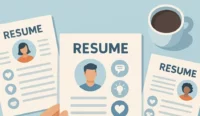Introduction: The Reality of Life Beyond the Ideal Track
From early childhood, we all share the same basic human experiences — finding food, securing water, and engaging with the tangible realities of daily life. These fundamental needs don’t change much, whether you live in a rural village or a bustling city. What changes is how we’re taught to think about our future.
For decades, society has been copy-pasting a single “ideal” career track for young people: excel in high school, do well in college, land a secure corporate job, and work your way up the ladder. It’s a safe, linear formula. But here’s the irony: we often idolize people who completely ignored that formula and succeeded on their own terms.
Table of Contents
The Problem with the One-Size-Fits-All Career Path
A Path Built for a Different Era
The traditional school-to-university-to-corporate pipeline was designed in the 20th century when large companies dominated the economy, and lifetime employment was common. In today’s rapidly changing job market, that path no longer guarantees stability — and often stifles creativity.
Artificial intelligence, remote work, and the gig economy have reshaped what “secure” work means. Yet we still encourage the next generation to follow a playbook written for a completely different world.
Why We Idolize the Outliers
Entrepreneurs, creators, and innovators often skipped or rewrote the traditional path. Think of the self-taught coder, the artist-turned-business-owner, or the startup founder who dropped out of college. These individuals took risks, embraced curiosity, and built careers aligned with their values — qualities the old formula rarely nurtures.
The Power of Early Curiosity and Real-Life Experience
Learning from the Ground Up
Understanding basic life processes — like where your water comes from or how infrastructure works — builds a practical mindset from a young age. Curiosity about the world fuels problem-solving skills, which are increasingly valuable in an unpredictable job market.
Why Early Exposure Matters
Kids who are exposed to hands-on experiences and problem-solving outside of the classroom often develop adaptability, resourcefulness, and confidence — skills that can’t be learned solely from textbooks.
Reach the Next Generation of Talent
Post your job on WhatJobs and connect with ambitious professionals building modern, flexible career paths beyond the old formula.
Post a Job Now →Building New Career Models for the Future
Encouraging Flexible Pathways
Instead of pushing one fixed track, we can support young people in exploring multiple career options early. Internships, apprenticeships, side projects, and entrepreneurial experiments can offer real-world insight and help them discover what truly fits.
Balancing Stability with Creativity
Security still matters, but so does autonomy. The future of work will reward those who can combine financial stability with the freedom to pivot when opportunities arise.
Conclusion: Time to Redefine Success
The “safe” career path isn’t inherently bad — but it shouldn’t be the only option. True success lies in building a career aligned with personal strengths, curiosity, and adaptability. If we want the next generation to thrive, we need to stop copy-pasting old formulas and start encouraging authentic, individualized paths.
FAQ – Rethinking Career Paths for the Next Generation
Q1: Why is the traditional career path outdated?
A1: It was built for a stable, industrial-era job market that no longer exists. Today’s economy demands flexibility and innovation.
Q2: How can curiosity shape career success?
A2: Curiosity leads to problem-solving skills, adaptability, and creativity — all essential in a changing job market.
Q3: Are corporate jobs still worth pursuing?
A3: Yes, but they should be one of many options. Young professionals should consider multiple paths to find what fits best.
Q4: How can parents support flexible career planning?
A4: Encourage early exploration through internships, projects, and real-world problem-solving, rather than a rigid focus on one track.






